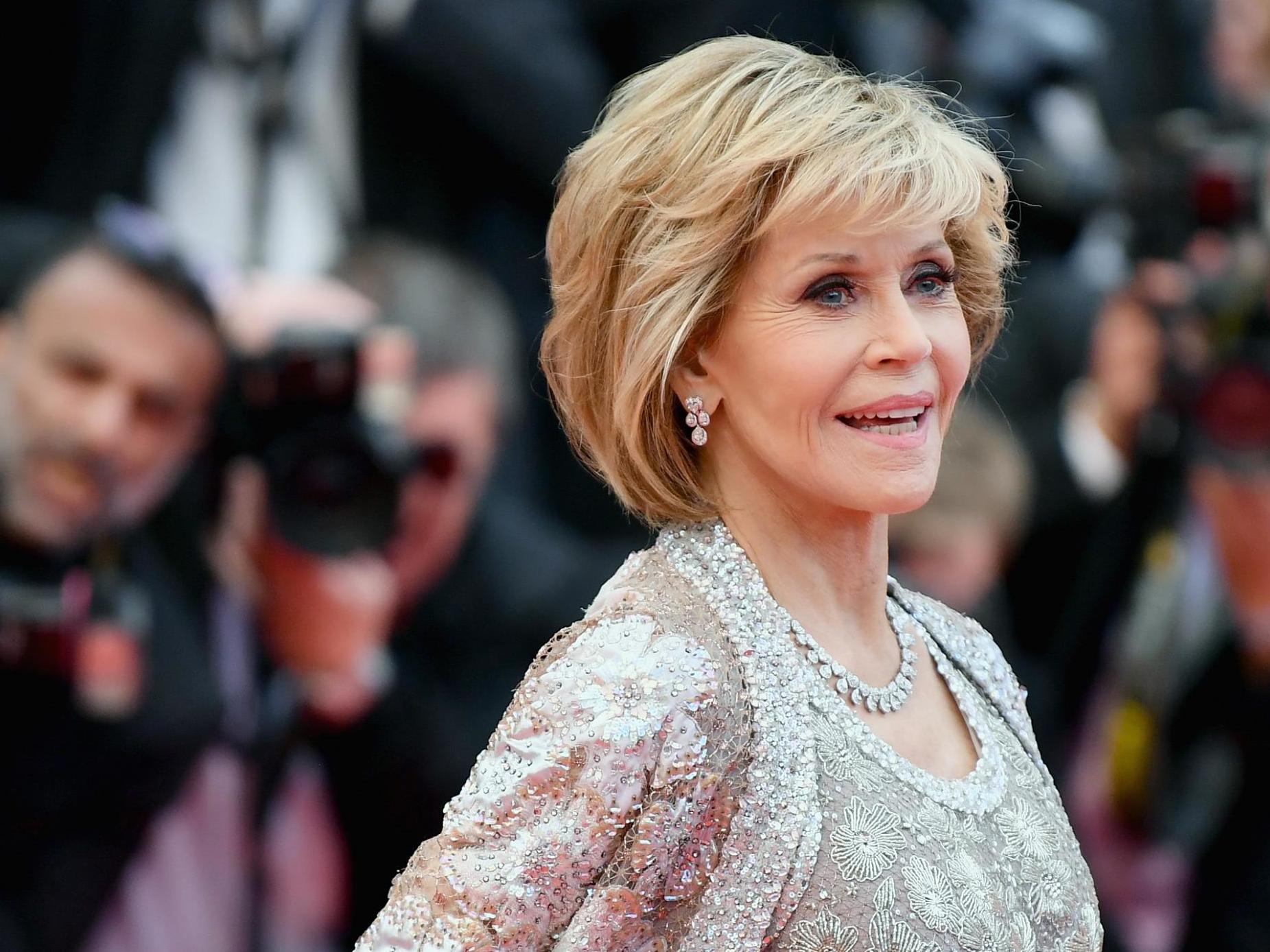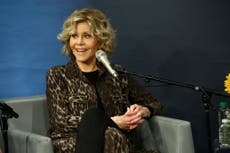Jane Fonda only started living for herself in her sixties and that's a bleak reminder of the power of the patriarchy
Women are increasingly refusing to let themselves be hustled out of the public eye at the first hint of a crow’s foot


Being a young girl is pretty good, but mostly because the world hasn’t had a chance to get its claws into you yet and make you miserable.
Being teenage while female: awful, a hormonal horror-show spent in the secondary-school hothouse, with boys gawking at your boobs.
Your twenties? Why yes, I do have anxiety. Could it be because I’m steering a course between precarious employment and sexual harassment, while people keep telling me my fertility is shrivelling away and I’d better get shacked up ASAP – only all the available men are idiots?
Your thirties, though. Much better. In your thirties, you start to know things. Things like what haircut actually suits you and the value of a proper raincoat. More importantly, you know how to say no. Even more importantly, how to say no to men – their expectations, their evaluations, the idea that their opinions should in any way dictate your life.
And, cheeringly, as Jane Fonda has suggested, it’s all uphill from there, as the now 80-year-old actor has given an interview saying that it took her until her sixties “to become who I was supposed to be all along”.
“Up until my sixties, I was to an extent, defined by the men in my life,” she told People magazine (and that’s probably even more true for Fonda than most of us, given that she carried the name of a very famous father, and married three men in succession who were all highly celebrated in their own right). “I was brought up to please. I wanted my father to love me so I would turn myself into a pretzel to be what he wanted me to be, not necessarily what I already was.”
The moment of transformation, she says, came when she decided to walk out on her objectively fine marriage to Ted Turner. And here, Fonda is very like many women of middle age: women are likely to be less satisfied with their marriages than men, and more likely to initiate divorce. It makes sense: for straight men, marriage is a sweet gig where you get a permanent, live-in employee to plan your dinners, arrange your social life, pick up your socks, have your children and tend to moods.
For women... Well, women become the staff. And eventually, you just have to hand in your notice on a job like that. Of course we get more radical with age when every experience simply underlines how raw of a deal we’ve been getting since the start.
What’s even more impressive is that every woman who flourishes with age is doing so despite the world’s insistence that we’re all over the hill at 25. Fonda’s Netflix sitcom Grace and Frankie (co-starring Lily Tomlin) is still a delightful exception to the usual entertainment rule for being headed up by two grown-ass women, playing characters who are petty, horny, competitive, loyal to each other and, above all, very funny.
Women are increasingly refusing to let themselves be hustled out of the public eye at the first hint of a crow’s foot: from Miriam O'Reilly holding the BBC to account, to Madonna slut-dropping her way into her sixties, the days of retiring quietly to an ice floe and drifting off to a cold and tidy death are done. Older women’s greatest power is not giving a sh**. The best thing that younger women could do is to live like they’re 60 already.


Join our commenting forum
Join thought-provoking conversations, follow other Independent readers and see their replies